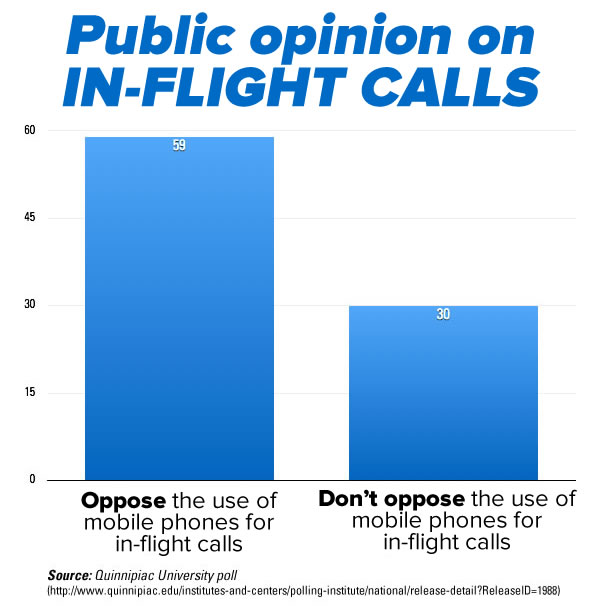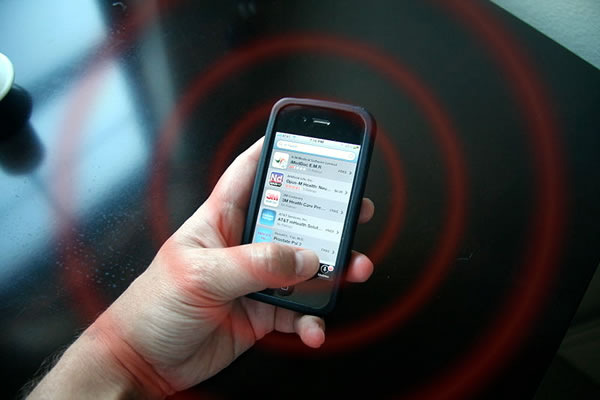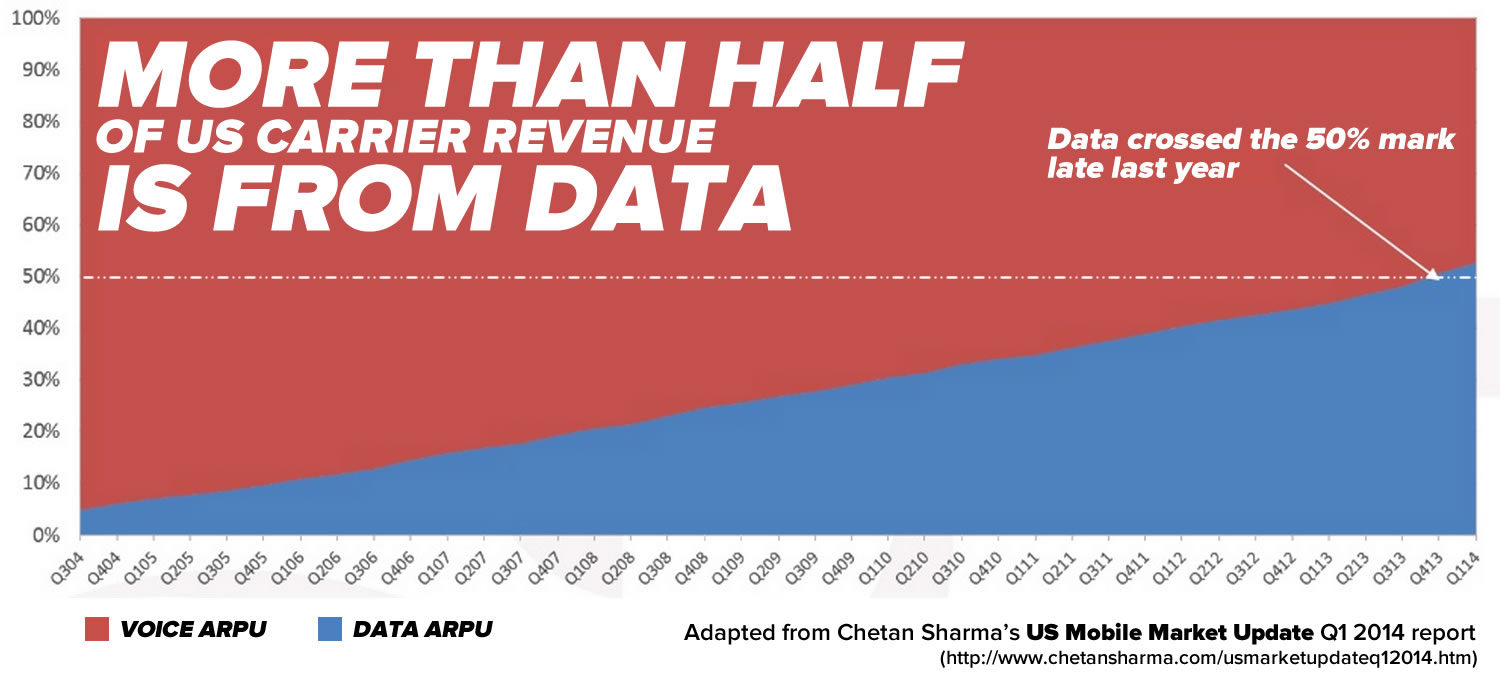DOT likely to ban in-flight phone calls

The Wall Street Journal reports that the U.S. Department of Transportation (DOT) will likely rule to ban in-flight mobile phone calls. Regulators are focused on the disruptions caused by voice calls and not on texting or data usage. Airlines say that the DOT is overstepping its authority, and would rather that the final decision be left up to them.
In case you were wondering, Delta and JetBlue have gone on the record saying that they won’t allow in-flight calls, and public opinion is generally against them:
Click the graph to see the data source.
Using your unlimited data plan in an unlimited fashion? Carriers don’t like that.
Adapted from Intel Free Press’ Creative Commons photo. Click to see the original.
Last week, Tom Wheeler, the Federal Communications Commission’s (FCC) chairman sent a letter to Verizon about their proposed “network optimization” plan asking why only certain customers are targeted for throttling — that is, the slowing down of data connectivity — when accessing “particular cell sites experiencing unusually high demand”. The targeted customers are heavy data users with who have unlimited data plans — in other words, people who use a lot of mobile data and accordingly purchased a plan that meets their needs. ReadWrite reports that he accused the carrier of using “network management” as a money grab:
Reasonable network management concerns the technical management of your network; it is not a loophole designed to enhance your revenue streams. It is disturbing to me that Verizon Wireless would base its network management on distinctions among its customers’ data plans, rather than on network architecture or technology.
Verizon’s response has been to call Wheeler’s letter “incorrect” and “surprising”, and to point out that the FCC hasn’t made any complaints about similar practices from the other carriers. As ReadWrite puts it, “It’s a polished and professional way of saying, Everyone else is doing it too, so what gives?”
Why is this the case? The chart below, which we published in an earlier article, explains it quite simply:
Click the graph to see it at full size.
In the pre-smartphone era, when the primary use for a mobile phone was talking, voice was metered and data (mostly for texting) as unlimited. Over the past few years, now that “mobile phone” means “smartphone” and data usage has skyrocketed, the carriers have been adjusting their business models accordingly, giving away voice and metering data:
- In 2010, AT&T stopped offering unlimited data plans to new subscribers. They — presumably with a fair bit of grumbling and gnashing of teeth — “grandfathered” existing customers with unlimited plans. Unlimited data AT&T customers get throttled whenever they exceed 3GB/month on a 3G device or 5GB/month on a 4G LTE device.
- Verizon stopped offering unlimited data plans to new subscribers in 2011. If you’re a Verizon customer with an unlimited data plan who’s in the top 5% of data users, consuming more that 4.7GB/month, you’ll get throttled.
- Sprint, after taking shots at other carriers for data caps and throttling in its marketing material, announced in May that it too, would throttle heavy users.
- T-Mobile were by far the most clever about data caps and throttling, by selling it as a feature rather than a limitation. They positioned it as “We’re no longer charging overage fees, like those other evil telcos do!” and throttling your data rates whenever you went past your monthly data cap. Their not counting many streaming music services against your data cap may be just enough of a bone to keep customers happy.
The message from the carriers is clear: If you have an unlimited plan and you’re using it for what you think is its intended purpose, prepare to be throttled.
Comcast sweetens their internet service offering for low-income customers after complaints

Comcast’s Internet Essentials program, which offers home internet service to low-income households at $10/month, was a concession made to help them secure the approval of their purchase of NBCUniversal in 2011. It sounds nice, but as the California Emerging Technology Fund (CETF) has complained that signing up for the service is deliberately long, often taking two to three months.
In response, Comcast have announced that it will offer “up to six months” of free internet and amnesty to people who are late paying their bills. Chances are that they’re doing this in light of their recent embarrassment with that cancellation call recording that went viral and needing to gain approval for merging with Time Warner.



